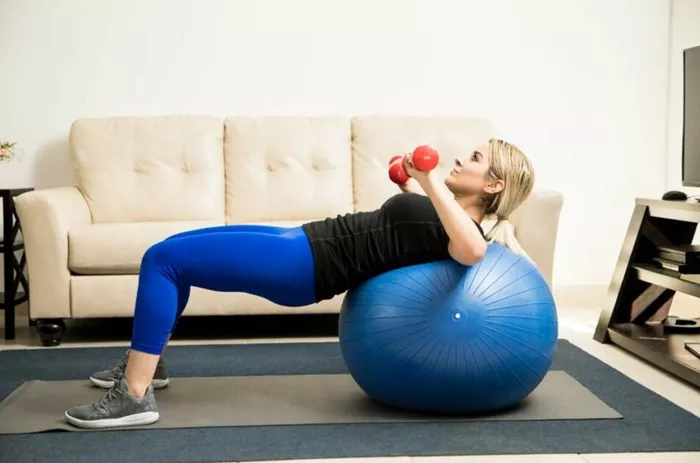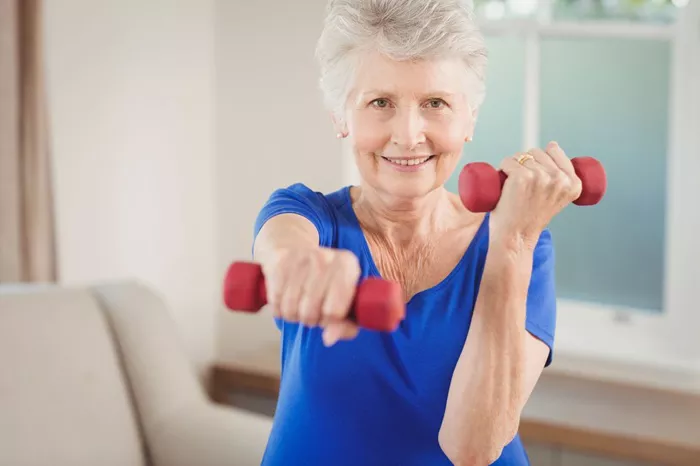Bone health is a vital aspect of overall well-being that often goes unnoticed. However, hormonal changes throughout a woman’s life—particularly during pregnancy and menopause—can significantly weaken bones without warning. Conditions like osteoporosis and osteopenia may not present noticeable symptoms until serious damage has occurred. Fortunately, engaging in weight-bearing exercises can play a crucial role in maintaining and improving bone density.
Research indicates that resistance exercises are essential for enhancing bone health. These exercises can involve various forms of resistance, such as free weights, weight machines, medicine balls, resistance bands, or even walking with a weighted vest. Bodyweight exercises are equally effective in building strength and promoting bone density. This is particularly important for older women and those who have gone through menopause, as studies show that targeted exercise can help counteract the bone loss associated with aging.
Understanding the Importance of Bone Health
Currently, approximately 54 million Americans suffer from osteoporosis or osteopenia, with the risk of developing these conditions increasing with age, particularly for women during menopause. Dr. Spencer Stein, an orthopedic sports surgeon, notes that women can lose up to 10 percent of their bone density within the first five years of menopause, which heightens the risk of fractures.
Additionally, pregnancy can temporarily reduce a woman’s bone density as calcium is transferred to the developing fetus, and breastfeeding can further deplete calcium levels. Thankfully, with proper nutrition and care, bone density often recovers after childbirth.
Strategies for Preventing Bone Density Loss
Preventive measures against bone density loss are crucial, and resistance training is a key approach. Regular strength training applies controlled stress to bones, stimulating a process known as bone remodeling, which strengthens bone structure. According to fitness coach Molly Ertel, even a few minutes of movement each day can yield significant benefits.
Experts recommend establishing a sustainable exercise routine that fits your lifestyle. Consulting a healthcare professional may help tailor the most effective plan. Beginners should start with bodyweight exercises before gradually incorporating weights, increasing resistance over time to promote bone health.
Recommended Exercises for Bone Strength
To build and maintain bone strength, consider incorporating the following exercises into your routine. Aim for three sets of 12 repetitions for each exercise, with rest periods of 30 to 90 seconds between sets.
Squats: Stand hip-width apart and lower into a squat, keeping your heels grounded.
Seated Jacks: While seated, alternate between closing and opening your arms while stepping feet out to the sides.
Reverse Lunges: Step back with one foot, lowering into a lunge position before returning to standing.
Deadlifts: Hinge at the hips while keeping your back straight to lower weights towards the ground.
Pushups: Maintain a plank position and lower your body, keeping elbows at a 45-degree angle.
Woodchops: Rotate your torso while lifting a weight diagonally from one side to the other.
Glute Bridges: Lie on your back, lifting your hips to form a straight line from your knees to shoulders.
Planks: Hold a plank position, engaging your core and maintaining a straight line from head to heels.
Isometric Squats: Hold a squat position for as long as possible, ideally at a 90-degree angle.
Seated Overhead Press: Press weights overhead while maintaining good posture.
Exercises to Avoid
For individuals with osteopenia or osteoporosis, certain high-impact activities, such as running or jumping, can be detrimental. Twisting motions and heavy lifting may also increase the risk of fractures. Experts recommend focusing on low-impact activities like walking, swimming, and bodyweight exercises to ensure safety while staying active.
Additional Tips for Healthy Bones
To further support bone density, it’s crucial to combine exercise with proper nutrition, including adequate calcium (at least 1200 mg) and vitamin D (1000 IU) intake. For those over 65, Medicare typically covers bone density scans every two years, though individuals at higher risk may need them sooner.
Maintaining bone health is an ongoing commitment, but with proactive measures, women can safeguard their skeletal system and enhance their quality of life as they age.
Related Topics
Urgent Call for Awareness: Vitamin D Deficiency Affects Nearly All Americans
Understanding the Risks of Vitamin D Overdose: Symptoms and Precautions
Enhancing Intimacy: The Role of Vitamin D Supplements in Sexual Health



































